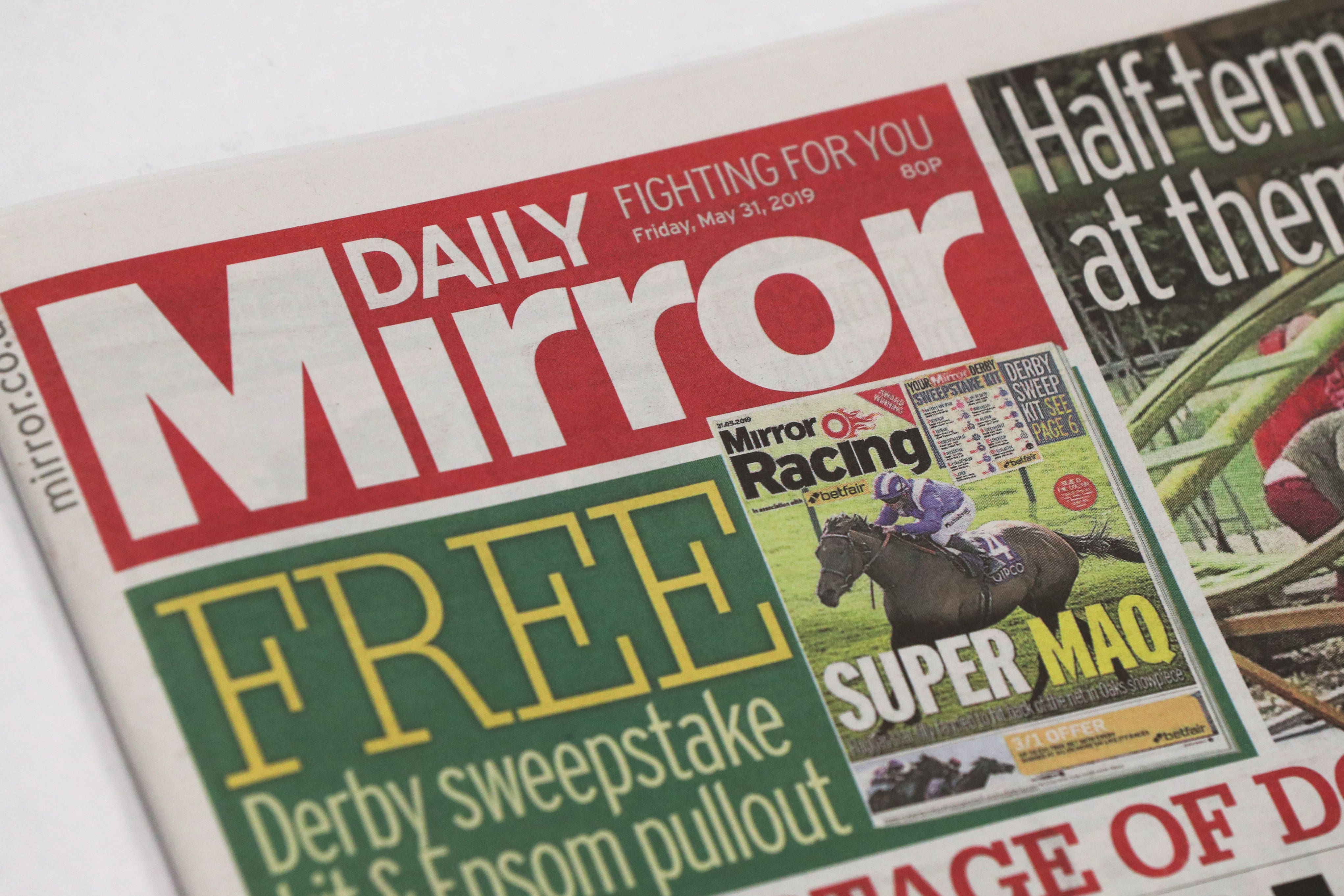Mirror owner Reach expects £20m dip in phone-hacking costs after High Court case
The company said that it expects most or all claims to be resolved this year and next, which is much sooner than previously thought.

Your support helps us to tell the story
From reproductive rights to climate change to Big Tech, The Independent is on the ground when the story is developing. Whether it's investigating the financials of Elon Musk's pro-Trump PAC or producing our latest documentary, 'The A Word', which shines a light on the American women fighting for reproductive rights, we know how important it is to parse out the facts from the messaging.
At such a critical moment in US history, we need reporters on the ground. Your donation allows us to keep sending journalists to speak to both sides of the story.
The Independent is trusted by Americans across the entire political spectrum. And unlike many other quality news outlets, we choose not to lock Americans out of our reporting and analysis with paywalls. We believe quality journalism should be available to everyone, paid for by those who can afford it.
Your support makes all the difference.The company behind the Daily Mirror and Daily Express has said it expects to pay out £20.2 million less to the victims of phone hacking due to a December judgment from the High Court.
Reach said that it has decreased the amount in its fund set aside for what it calls “historical legal issues”, which include “phone hacking and unlawful information gathering”.
In December, the High Court ruled that Reach – previously known as the Mirror Group – had widely publicised its admission of wrongdoing in 2014, and that people had several years to come forwards with claims.
Any claims brought against the group after October 31 2020 would therefore need to show they were the result of exceptional circumstances.
We have significantly reduced our obligations and have a clear path forward for the business
Reach said: “In December, the High Court’s judgment on the group’s historical legal issues provided clarity around time limitation.
“This has resulted in a material reduction in the cost of settling outstanding claims and should largely bring an end to future claims.”
Because of this the company has released £20.2 million that it previously set aside for covering the costs of phone-hacking claims.
“We expect the majority, if not all, of the issued claims to be resolved during 2024 and 2025 which is a much shorter timeframe than previously anticipated,” it added.
Reach reported a 5.4% reduction in revenue to £568.6 million in the 53 weeks to the end of December.
During the year the business saw revenue rise 1.6% from selling newspapers, totalling £312.5 million. However the money it got from the adverts printed in those newspapers dropped 12% to £76.6 million.
It came in a year when the business reduced the number of workers it employed by 14% as part of a cost-cutting programme which included cuts in the production volumes of newsprint.
Chief executive Jim Mullen said: “This year we have successfully gained clarity on two significant long-term uncertainties in pension funding and historical legal issues.
“With the end of these issues in sight, we have significantly reduced our obligations and have a clear path forward for the business.
“The success of our strategy also came to the fore this year. Despite the macroeconomic pressures, we have continued to build a stronger digital business with an increasing portion of much higher yielding revenues, reducing our reliance on the open market.
“At the same time, we have expertly managed our print business, maintaining circulation revenues as well as delivering necessary cost and efficiency plans across the group.”